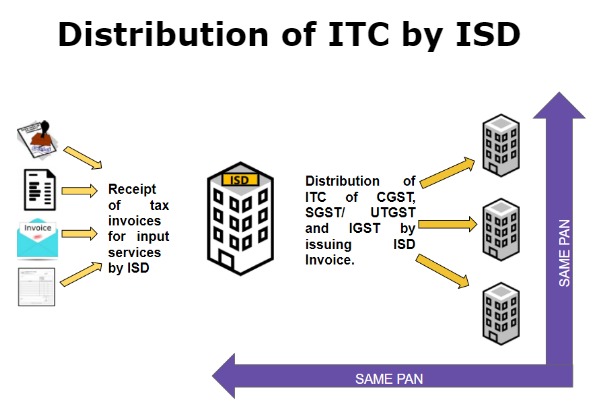Samir Kumar Mookherjee, J.@mdashThis Revisional application is directed against Order No. 5, dated 2nd of March, 1987, passed by the learned District Judge, Burdwan in Title Appeal No. 230 of 1986, rejecting an application for condonation of delay, on behalf of the plaintiffs, in preferring the said appeal.
2. The facts, which are not in dispute, are that the suit was dismissed on contest on 12th of October, 1985, the hearing having been concluded on 10th of October, 1985; the plaintiffs in the said suit were the sons of one Kalyan Kumar Nath and the defendants were the successors in interest of late Harendra Nath and the State of West Bengal, being represented by the Collector, Burdwan.
3. In the suit, the substance of the plaintiffs allegations was that the suit properties were purchased from Harendra Nath, predecessor-in-interest of the private defendants for a consideration of Rs. 10,000 and the plaintiffs were in possession of the same; but the State respondent, claiming the suit lands as vested, had been trying to throw the plaintiffs out of possession and consequently, a decree for declaration of title and permanent injunction had been prayed for on behalf of the plaintiffs.
4. In the suit, in their written statement, the private respondents contended that their predecessor-in-interest was merely a benamdar of the plaintiffs and the question of execution of a deed of sale or passing of consideration of Rs. 10,000 was accordingly wholly unnecessary and uncalled for.
5. As witness in the suit, the plaintiff No. 3 deposed, since at the relevant time, the said Kalyan Kumar Nath the father of the plaintiffs was claimed to be ill.
6. It is significant to note at this stage that the appeal was ultimately filed by Tarun Kumar Nath, the said witness, as a constituted attorney of the plaintiffs. The trial court dismissed the suit, inter alia, finding that there was no evidence of purchase by Charuprova, grandmother of the present plaintiffs and the mother of Kalyan Kumar Nath, of the disputed property at a consideration of Rs. 10,000 ; that the administration of the property in terms of Charuprova''s will had not been even pleaded on behalf of the plaintiffs; that the plaintiffs failed to prove that they were in possession and lastly, that there was no sufficient evidence, substantiating the service of a notice u/s 80 of the CPC by the plaintiffs, though the Trial Court refused to reject the plaint on that ground because of the delay in taking such objection. It further appears that the Civil Court vacation commenced on and from 13-10-1985 and re-opened on 15-11-1985 (wrongly stated as 18-11-1985). The certified copy of the judgment and decree was applied for on 19-11-1985 and became ready for delivery on 25th of April, 1986, but delivery was taken only on 12th of May, 1986. The appeal in question was filed on 14-11-1986.
7. There is some dispute about the number of days constituting delay in filing the appeal. According to the plaintiffs-petitioners, the same was 169 (one hundred and sixty nine) days but according to the private defendants-opposite parties, the same was 241 ( two hundred and forty one) days.
8. The learned Judge dismissed the application u/s 5 of the Limitation Act, inter alia, with the following findings :
(i) The contention of the appellants that their father had been entrusted to look after the litigation and file the appeal was belied; (ii) there is no explanation as to why the certified copy could not be applied for before 19-11-1985; (iii) it is difficult to believe that the appellants did not have any knowledge about delivery of judgment on 12-10-1985; (iv) there is no explanation as to why the delivery of the certified copy had not been taken before 12-5-1986 and (v) there is no explanation as to why the appeal could not be filed before 14-11-1986.
9. In support of the Revisional application, Mr. Mitra has placed a great emphasis on the principles laid down by the Supreme Court in the case of
10. Mr. Banerjee, appearing on behalf of the contesting private opposite parties, has, however, pointed out that in view of the social advancement, law cannot remain static but has to be dynamic and as such, in the present day''s context, the guidelines laid down by the Supreme Court correctly fit in with the said dynamic element of law. But even applying the said principles, according to Mr. Banerjee, it cannot be said that the requirements u/s 5 of the Limitation Act have been given ago by, though have been considerably relaxed and liberalised. In the facts of the case cited by Mr. Mitra, Mr. Banerjee has pointed out, that the delay was only for four days in filing a special leave application and the stake of litigation was nearly fourteen lacs of rupees. In the facts of that particular case, Mr. Banerjee has submitted that the Supreme Court condoned the delay of four days. In the facts of the present case, according to Mr. Banerjee, occasions of default or negligence on the part of the appellants are galore; the findings of fact made by the Lower Appellate Court amply substantiate the propriety of the said submission; therefore, even following the principles laid down by the Supreme Court decision as cited, the appellants cannot claim to be successful, but their application should be found to have been rightly rejected by the Lower Appellate Court.
11. Considering the respective submissions of the contesting parties, it appears that in the instant case the plaintiffs went to court, praying for condonation of the delay of at least 169 days, assuming the plea of the appellants to be correct, substantially on the basis of a case that the illness of their father, who was entrusted to look after the case on their behalf and take steps for filing of the appeal, impeded timely filing of the appeal. The period of illness in the application u/s 5 of the Limitation Act was alleged to be commencing from the third week of April 1985. The medical certificate relied on by the plaintiffs appellants in the court below, however, only shows the period of illness to be confined to 28th of May, 1986 and 9th of November, 1986. Admittedly, the certified copies became ready for delivery on 25th of April, 1986 and there is no explanation as to why, though the appellants'' father was not ill at the relevant point of time, as found by the lower appellate court, delivery of the certified copies could not be taken and necessary steps for filing the appeal were not initiated. In this context even the case of the appellants that their father was entrusted with the duty of looking after the case on their behalf and filing the appeal also has been disbelieved by the lower appellate court and in my view, that too on reasons to which, no exception can be taken. Admittedly, from the averments in the application u/s 5 of the Limitation Act it appears that the witness who deposed on behalf of the appellants in the court below was the appellant, petitioner No. 3, who was the constituted attorney also duly authorised to file appeal on behalf of the appellants. It is, therefore, not correct to say that the illness of the appellants father could in any way prevent the filing of the appeal in time. Secondly, the period of illness, continuing upto 9th of November, 1986 does not also appear to have been correctly made out, as it appears from the Section 5 application itself that the petitioners father went to Burdwan to take delivery of the certified copy on 4-11-1986, an inconsistency, which very materially prejudices the justness of the prayer for condonation. It is significant to bear in mind that the appellants did not make out a case of having applied for the certified copy on the 19th of November, 1985 with an impression that without the decree being drawn up, the application for certified copy of the decree would be infructuous. The alleged imposition of obligation on the father to take steps for filing of the appeal and to look after the suit is also not warranted on the materials produced as referred to above. Bearing in mind the aforesaid facts, event applying the principles aid down by the Supreme Court in the decision cited by Mr. Mitra, the appellants are not entitled, in my view, to condonation of delay of 169 ( one hundred and sixty nine) days. If the delay is condoned in such a case where the judgment under appeal, a copy If which has been produced by Mr. Mitra before me, does not suffer apparently from any serious infirmity any serious legal error, it would really not subserve the cause of justice nor would it be a pragmatic approach but, on the contrary, it would be a pedantic approach to divest the defendants of the benefit conferred on them by the Statutory provision of limitation. Court''s anxiety as revealed in the Supreme Court decision to mete out justice unfettered by technicalities must not be abused to give Premium to an undeserving party. I am conscious in not adopting hypertechnical approach in the matter. The findings of fact by the Lower Appellate Court, which have not been challenged except for reappraisal in the light of the Supreme Court judgment, amply justify the manner of exercise of discretion by it against the Plaintiffs appellants and in view of the reasonings given by me hereinabove, do not call for any interference.
12. The Revisional application, therefore, fails and is dismissed with costs, assessed at 3 G.Ms.

